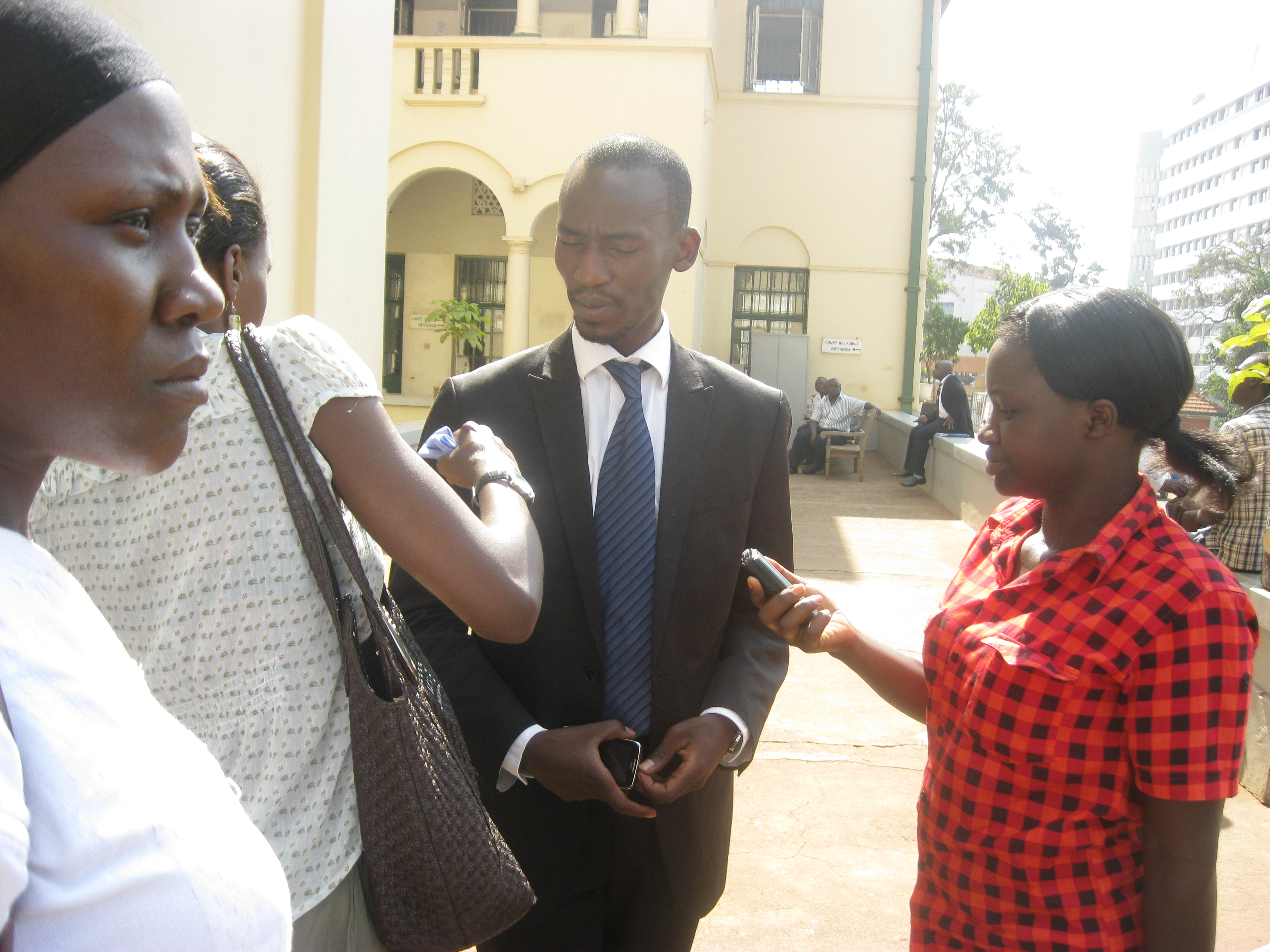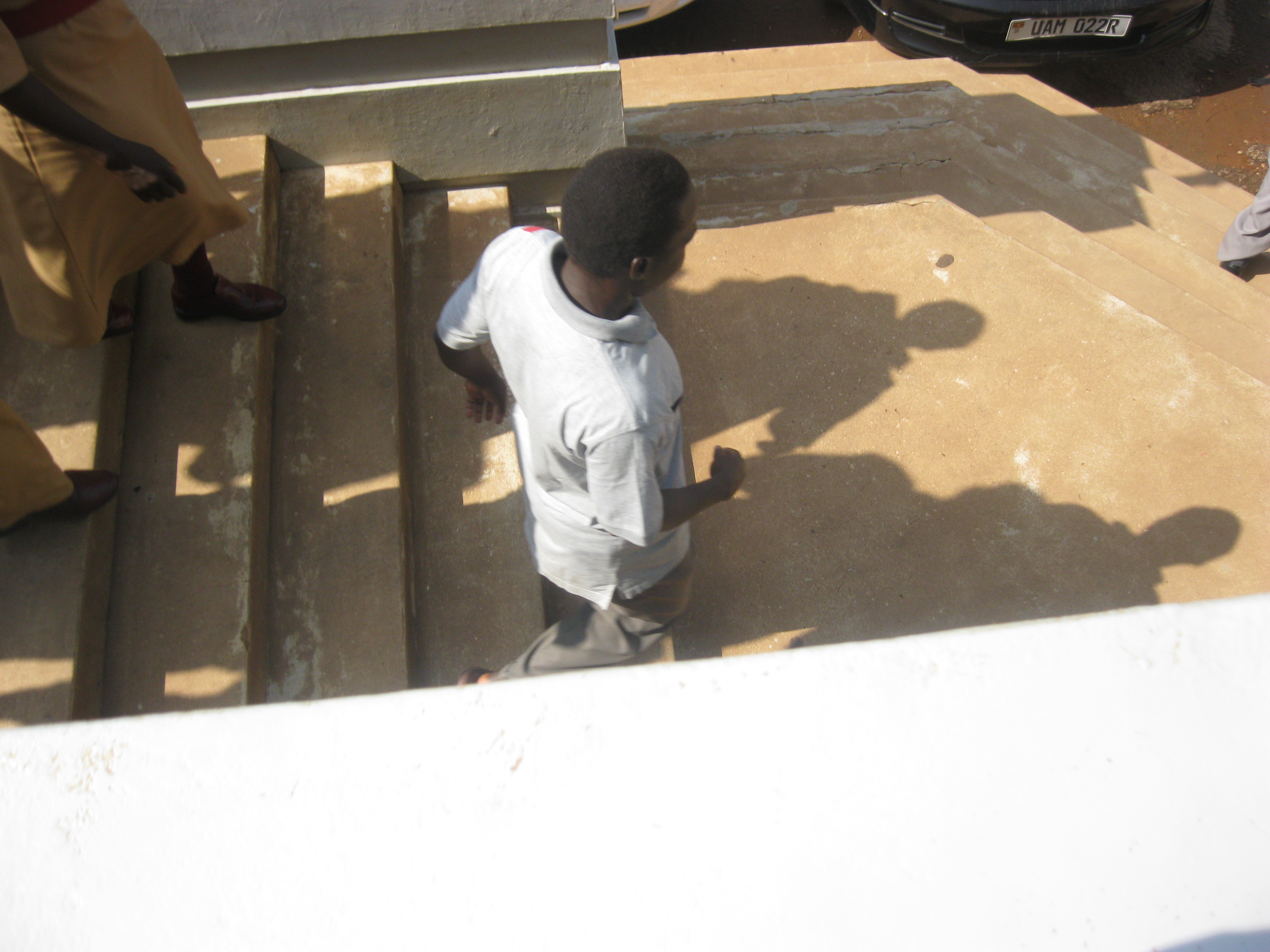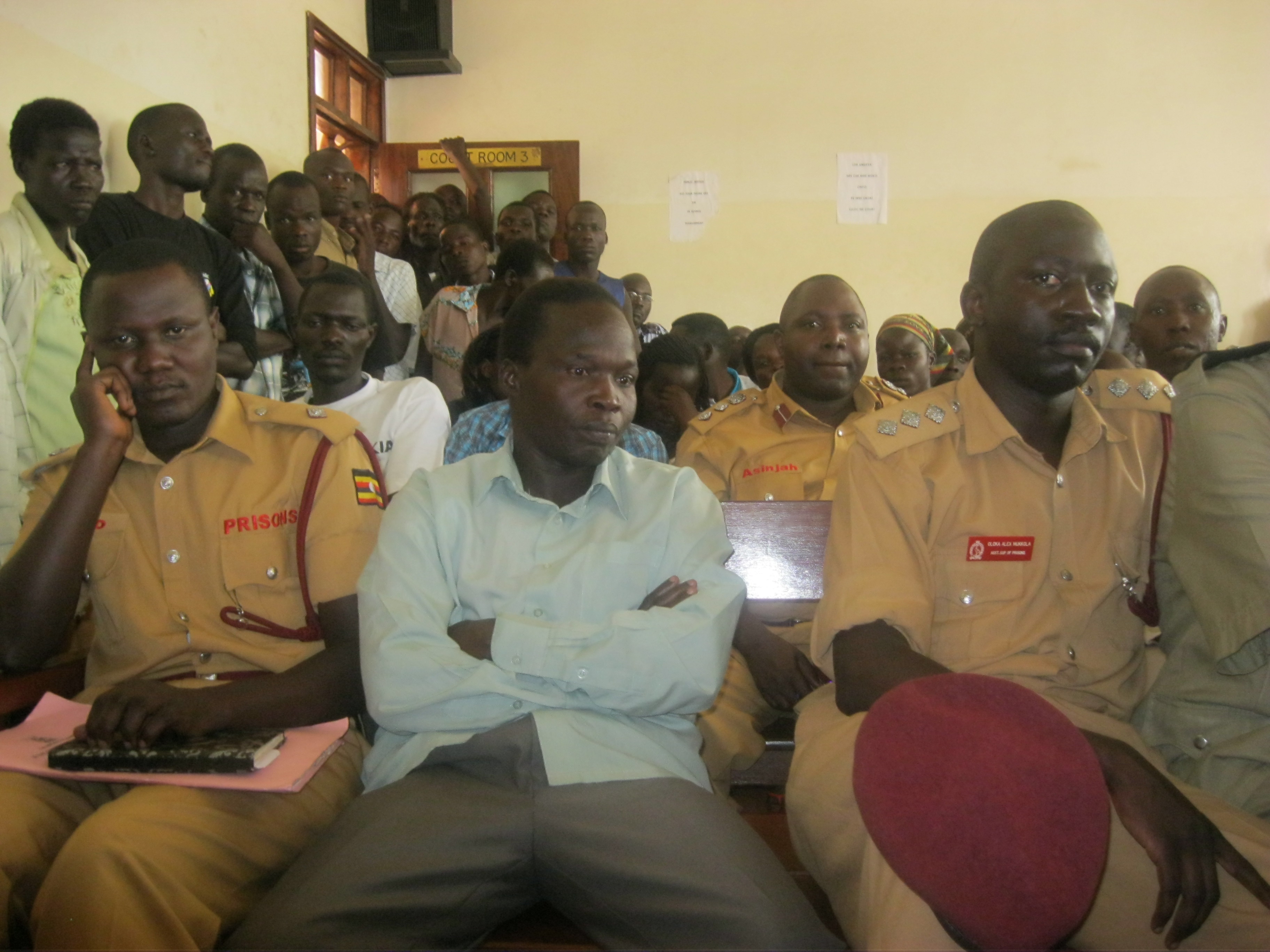“Col. Kwoyelo rearrested within minutes of his release by High Court in Gulu,” Acholi Times, 14 Nov. 2011
http://www.acholitimes.com/index.php?option=com_content&view=article&id=511%3Acol-kwoyelo-rearrested-within-minutes-of-his-release-by-high-court-in-gulu&catid=8%3Afront-news&Itemid=95
By Livingstone David Okumu
Uncertainty swept through the courtroom in Gulu High Court on Friday after former LRA Colonel Thomas Kwoyelo was whisked away under tight security to Gulu prison minutes after the International Crimes Division directed that he be set freed immediately. Col Kwoyelo, who was facing 53 counts of war crimes and crimes against humanity, was officially set free at 11:30 am after a 2 hour delay on Friday 11 November 2011.
The head of the court, Justice Dan Akiiki Kiiza after a brief apology to the court over the delay in convening the court said that they were simply following a directive from the Constitutional Court after its ruling on the 22nd September.
The Constitutional Court had ruled that the denial of Col Kwoyelo’s application for amnesty by the DPP was unconstitutional and contradicted articles 1, 2, 20 and 21 of the constitution of Uganda.
Justice Akiiki said the court in releasing Col Kwoyelo was simply following the directive of a higher authority.
“We hereby cease the trial of the accused Thomas Kwoyelo alias Latoni forthwith. And consequently direct the DPP and the Amnesty Commission to comply with the provisions of the amnesty act” he ordered before ending the session.
The court room burst into a murmur of approval as Kwoyelo, wearing matching green shirt and trousers, was directed by prison warders, into the back of the court.
However, the crowd, including his mother and sisters, who attended the session waited for more than 45 minutes in the hope of seeing Col Kwoyelo released, only to see him whisked away in two prison pickup trucks led by a police escort truck.
His mother, Rosolina Oyela said she was surprised by the incident because she expected to go back home with her son.
His lawyer, Francis Onyango declined to comment on the matter.
“I have no comment because there is a Supreme Court case over the issue,” he said.
Civil society, cultural and religious leaders in the region reiterated their called for the promotion of Mato Oput way of justice to the war affected communities in northern Uganda. Lino Owor Ogora, the head of research and documentation at the Justice and Reconciliation Project, said the way forward is to reconcile Kwoyelo with the victims in Pabbo.
He said technically Kwoyelo is free but realistically he is not since a needed to be face the communities of his victims to ensure that he leads a normal life in their midst.
Kwoyelo was whisked to Kampala after a brief stay a Gulu prisons.





